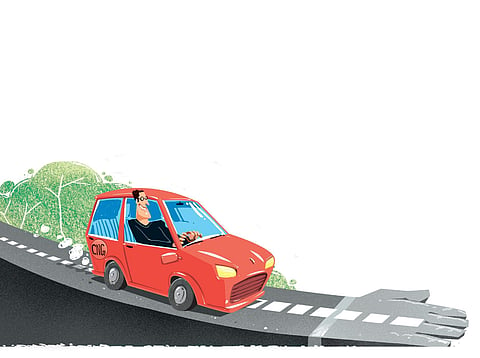

NEW DELHI: The AAP government in Delhi wants to fund incentivizing its Delhi Electric Vehicle (EV) policy notified last week by introducing the ‘feebate’ system. Simply put, feebate’ prepared by NITI Ayog proposes a surcharge on inefficient polluting vehicles while offering a rebate to efficient ones.
The policy makes a case for incentives of up to Rs 1.5 lakh for the purchase of new electric cars. An incentive of up to Rs 30,000 will be provided for e-two-wheelers, autos, e-rickshaws and freight vehicles.
“We are also going to give a scrapping incentive for those wanting to exchange their petrol or diesel-run vehicles. In the country, this is the first time that scrapping incentive is being given,” Kejriwal said.
According to the EV policy, funding for the various incentives being offered will be obtained from the sources aggregated under an umbrella of non-lapsable state EV fund. To make electric vehicles more lucrative, NITI Ayog explored the concept in collaboration with US-based Rocky Mountain Institute. It is based on the ‘polluter pays’ principle. A think-tank report said, feebate policies are in place in Austria, Denmark, the Netherlands, France, Canada and Singapore.
Experts, however, doubt the implementation of the concept as all these countries have a robust electric vehicle infrastructure in place.
“Implementing the feebate concept is difficult. The EV policy talks about many things but the prices at current products available reduce the option for customers interested in e-vehicles.
So, taking fee from one in order to attract the other citizen is a good concept, but in India it is difficult” said Vel Murugan, Chief Scientist at the Central Road Research Institute (CRRI).